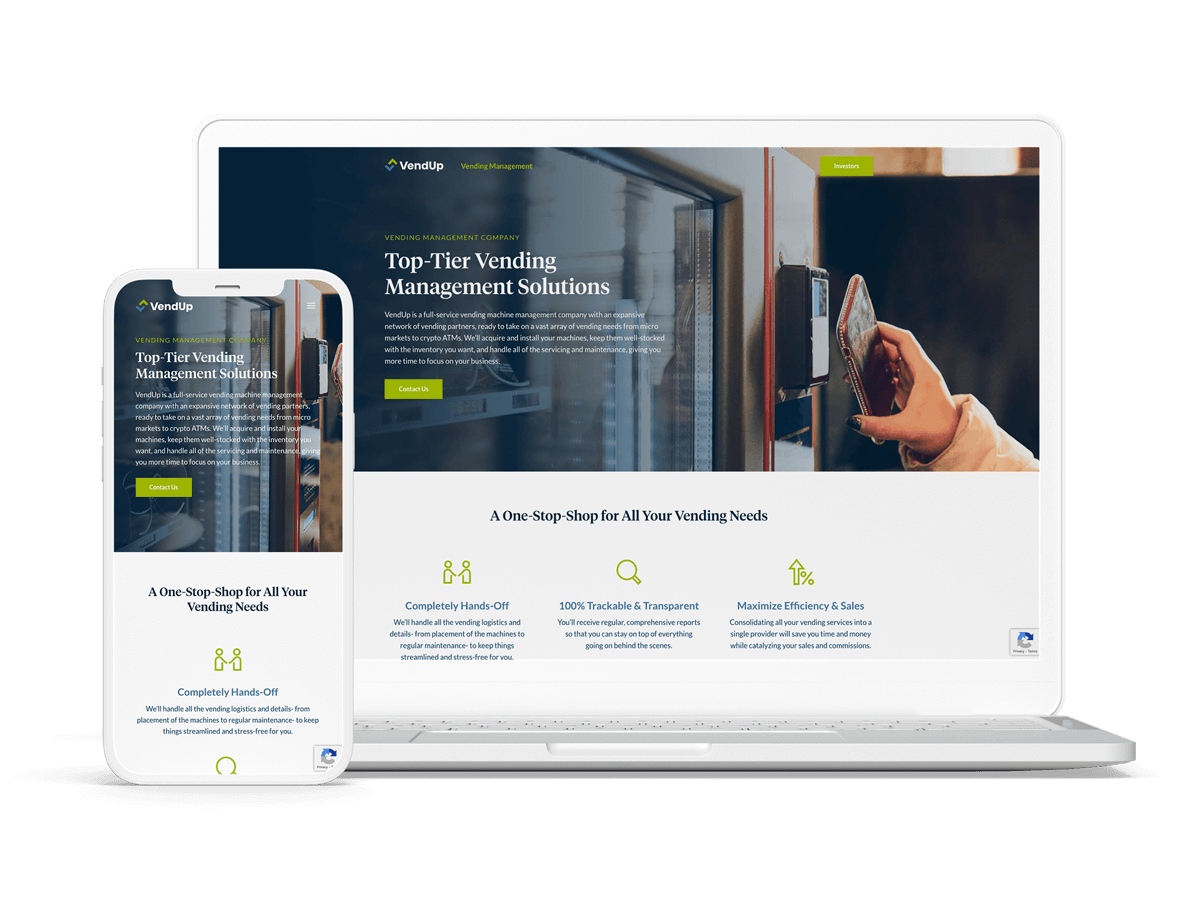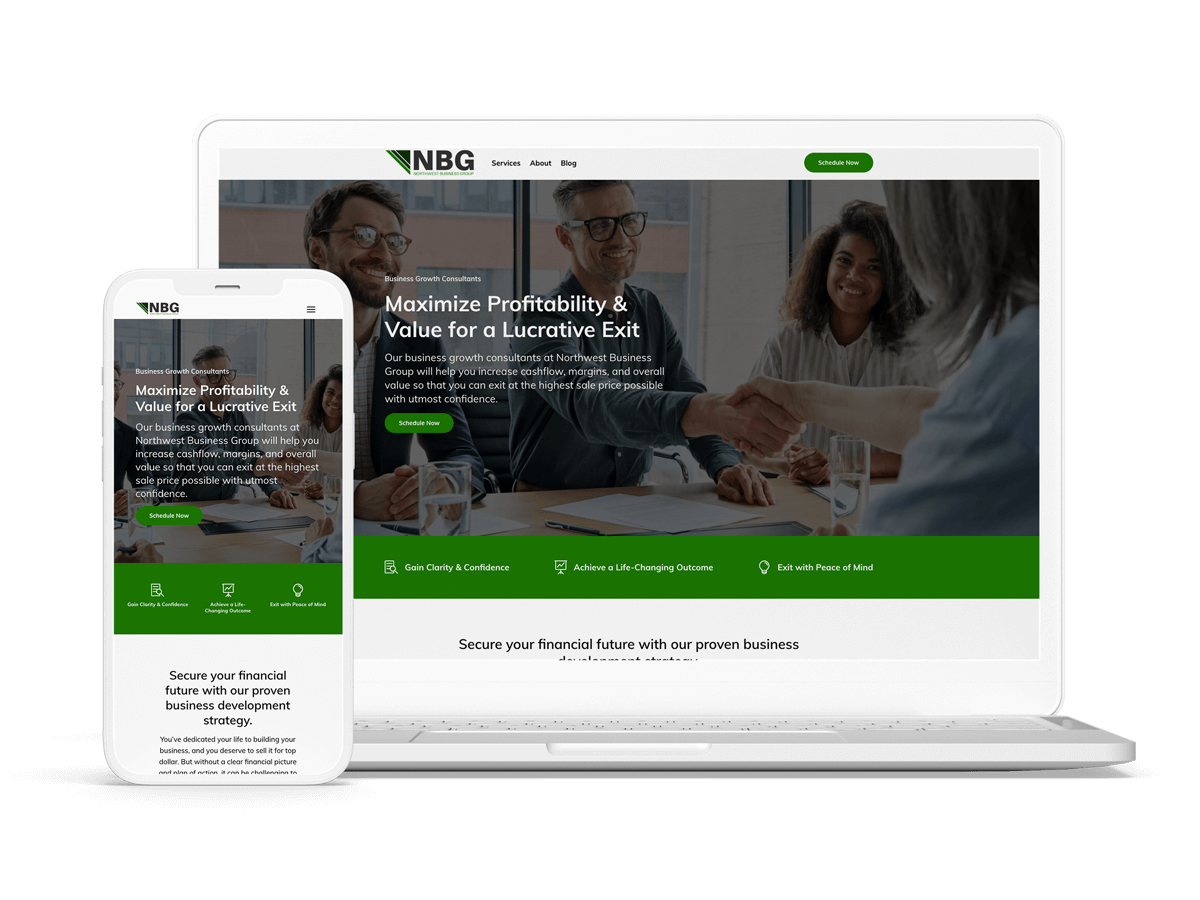Trying to understand website copywriting rates can feel like navigating a maze. While words on a webpage might seem simple, the strategy, expertise, and effort behind them often come with varying costs and pricing models.
In today’s fast-paced digital landscape, mere milliseconds can make or break a connection. Your website is your digital storefront, where 67% of consumers say they go to learn more about a brand– and persuasive, engaging website copy is your key to standing out. Writing website copy is not just about stringing words together; it’s about crafting a compelling story, a connection, and ultimately, a conversion.
But with average copywriting rates ranging from $25 to $25,000 per page, how do you discern the fair price for quality? How do you ensure you’re not overpaying for content or compromising quality for affordability? Understanding website copywriting rates, their structures, and their determinants is essential.
In this blog post, we’ll unravel the mysteries behind website copywriting rates. We’ll help you compare different pricing models, guide you through budgeting, and lead you to find a copywriter who fits both your needs and budget. This is a practical guide for decision-makers like you who seek fair, transparent copywriting rates that deliver the quality and results they’re after.
9 Factors that Contribute to Website Copywriting Rates
Before you hire a blogger, it’s crucial to understand the factors that drive different rates. From the copywriter’s expertise to the project’s scope and the intended results, each aspect is a puzzle piece contributing to the final price tag. Let’s take a closer look at what impacts the cost of website copywriting and why.
- Expertise & Skillset: A copywriter’s skillset, honed through experience and training, is the main factor affecting their rates. From crafting compelling headlines to weaving seamless narratives that resonate with your audience, their expertise adds a layer of value to their services.
- Project Scope & Complexity: The complexity of your project influences the rates. Is it a straightforward product description or an in-depth whitepaper? The depth of research, the level of technicality, and the creativity required all play a part.
- Research & Discovery: Copywriting is more than just stringing words together; it’s about understanding your brand, your audience, and your unique selling proposition. Great copywriters delve into research to uncover the nuances that set your business apart. This deep dive fuels the authenticity and relevance of the words they craft.
- Creative Conceptualization: Originality is the heart of effective copy. Generating unique, attention-grabbing ideas requires creative brainstorming and innovation. Copywriters who bring a fresh perspective and inventive concepts contribute to the overall value.
- Time & Effort: The time and effort invested in brainstorming, drafting, revising, and polishing also contribute to website copywriting rates. It’s not just about speed or word count– it’s about ensuring each phrase captures the true essence of your brand.
- Target Audience & Tone: Tailoring your message to resonate with your target audience requires finesse. Experienced website copywriters will adjust their tone, language, and style to strike the right chord. This personalized touch ensures your copy speaks directly to those you seek to engage.
- Revisions & Collaboration: Website copywriting isn’t a one-way street. Revisions, feedback, and collaborative fine-tuning are essential to crafting copy that shines. Many pricing models encompass this iterative process, where your input helps mold the final product.
- Urgency & Timelines: Rapid turnaround often comes with a higher price point. If you require website copywriting at lightning speed, be prepared for a potential adjustment in rates to accommodate the urgency.
- Results & ROI: Ultimately, copywriting is an investment. It’s not just about the upfront cost; it’s about the returns you reap. Compelling copy drives conversions, boosts engagement, and enhances your brand’s visibility – a value that extends far beyond the initial rates.
Of course, you want top-notch website copy, but you also have a budget to stick to. It’s about finding that sweet spot where quality meets value. So, let’s dive deep into the different website copywriting pricing models, breaking down their average rates and evaluating the pros and cons of each.
4 Popular Website Copywriting Pricing Models
Let’s unpack the four primary pricing models in the website copywriting realm: Per word, per page, per hour, and per project.
Pricing Model #1: Copywriting Cost Per Word
When you pay “per word,” you’re essentially compensating the writer based on the number of words they produce, irrespective of the time or effort they’ve put into the project.
Typical per-word rates:
- Beginner copywriters: $0.05 to $0.10 per word
- Intermediate copywriters: $0.10 to $0.25 per word
- Expert copywriters: $0.25 to $1 per word
On the plus side, this pricing model makes upfront costs more transparent and easy to calculate. Many people use this model for large-volume copywriting tasks, like blog posts or articles. However, this model doesn’t guarantee quality, and writers may feel pressured to inflate word count.
Pricing Model #2: Copywriting Rates Per Page
The “per page” model provides a flat rate, usually based on industry standards for what constitutes a “page” of website copy (often between 250 and 500 words).
Typical per-page rates:
- Landing pages: $50 to $1000 per page
- Blog posts (500-1000 words): $100 to $500 per page
- Whitepapers (longer, in-depth pieces): $200 to $1000 per page
This model allows for predictable pricing for a complete page of website copy and is often used for projects where the page layout, design, or SEO integration is planned out. However, variability in length and depth of copy on different types of website pages can make comparisons and pricing tricky. If you have in-depth research needs, a different model might make more sense.
Pricing Model #3: Copywriting Rates Per Hour
This model ensures you’re paying for the time the writer dedicates to your project. This includes everything from initial research, drafting, and revising, to final proofreading. According to Forbes, most small businesses pay between $30 and $120 per hour for copywriting.
Typical per-hour rates:
- Beginner copywriters: $20 to $50 per hour
- Intermediate copywriters: $50 to $100 per hour
- Expert copywriters: $100 to $300 per hour
This model helps ensure you’re paying for effort rather than just output, which is why it’s often used for more complex writing tasks that require deep research or those with an undefined scope. However, it can be difficult to predict total costs– plus it doesn’t incentivize efficient copywriting.
Pricing Model #4: Copywriting Rates Per Project
A project-based pricing model bundles every aspect of a task into a single rate. This payment type is ideal for tasks with multiple components or when working with trusted writers where you feel confident about the quality you’ll receive.
Typical per-project rates:
- Blog post series (5 articles): $500 to $2500
- Website content overhaul (10 pages): $1000 to $5000
- Ad campaign copy: $500 to $3000
This model allows for streamlined budgeting and provides a more holistic project view. It’s ideal for bulk or retainer agreements. Keep in mind that any changes in project scope can lead to renegotiations, so be sure to scope out your project in detail from the start. Although initial costs may appear higher than per-word or per-page rates, revisions are typically coped into the project, which can yield higher-quality results.
Budgeting Wisely for Copywriting Website Content
Creating a clear budget before you start the hiring process will help you find high-quality website copywriting for a reasonable rate so that you don’t break the bank. Below are some steps you can take to help you set a realistic website copywriting budget– and stick to it!
1. Determine Project Scope:
- Start by clearly defining what your project will encompass. Are you looking at a complete revamp of your website content or just minor tweaks?
- Outline the main objectives you aim to achieve with the updated content.
2. Evaluate the Complexity:
- Categorize your content needs. For instance, is it homepage content, blog posts, or product descriptions?
- Recognize that different content types might come with varying costs.
3. Research Standard Rates:
- Investigate the industry rates for the kind of content project you have in mind. Websites, forums, or professionals in the industry can be sources of this information.
- Aim for a realistic understanding of what your desired content will cost.
4. Assess the Lifespan of the Content:
- Determine whether the content you’re commissioning is for a one-time event or campaign, or if it’s something that will provide value over a longer period.
- Longer-lasting content may justify a higher initial investment.
5. Account for Additional Costs:
- Budget for any revisions that might be needed after the first draft.
- Remember to factor in other related costs, like SEO optimization, research, and perhaps even graphics or infographics.
6. Prioritize Quality Over Quantity:
- It’s often better to have fewer pieces of well-crafted content than a lot of mediocre ones.
- Investing in quality ensures your content will resonate more with your target audience.
7. Set a Contingency Budget:
- Always keep a buffer in your budget for any unplanned requirements or changes that might arise during the project.
8. Ensure Alignment with Overall Marketing Goals:
- Look at your content strategy within the broader context of your overall marketing and business objectives.
- Allocate your funds in a manner that the content supports and furthers these goals.
9. Get Multiple Estimates:
- Approach several freelance writers or content agencies to get quotes.
- This not only gives you a range of price points to consider but also helps identify any outliers that are either too cheap or too expensive.
10. Initiate a Pilot Project:
- Before diving in headfirst, consider starting with a small project or a single piece of content.
- This allows you to gauge the quality, professionalism, and ROI potential of the writer or agency before committing to a bigger project.
- By following these steps, you’ll be well-equipped to set an effective and efficient budget for your website copywriting needs.
Hiring a Copywriter: Navigating the Selection Process
Once you have a clear budget in place, it’s time to define your project and ideal copywriter. Craft a request for proposal (RFP) that clearly outlines your website copywriting project goals and objectives, target audience demographics, deadlines and timelines, budget constraints, and the expected deliverables.
Next, define your ideal copywriter and list out the skills, experience, and knowledge you seek. Most projects require a balance of general writing skills, experience in similar website copywriting projects, and specific knowledge of your industry or target audience.
There are different types of copywriting services available, including independent freelancers, digital marketing agencies, and online platforms. Here are some pros and cons of each:
- Freelancers: Hiring a freelance copywriter is often more flexible and budget-friendly, but vetting is crucial to ensure they are a genuine fit for your needs.
- Agencies: You gain access to a team of writers, editors, and strategists, but this may come at a premium price.
- Platforms: Websites like Upwork or Contently can connect you with a variety of copywriters, though the quality of these writers can vary greatly so vetting is essential. Also, be aware that most of these platforms come with fees. For example, Upwork charges client marketplace fees and contract initiation fees.
When vetting freelancers and agencies, look at their portfolios to gain a sense of their writing style and adaptability. Ask for testimonials or references from previous clients to gain a more complete picture of what it’s like to work with them. Gather multiple quotes and interview potential copywriters to delve deeper and better understand their process, approach, and adaptability.
Here are some possible questions to ask during an interview:
- How do you approach a new project or industry?
- Can you share an example of a project that had significant results or impact?
- How do you handle feedback and revisions?
- What’s your process for integrating SEO and user experience principles?
Maximizing Value: How to Get The Most Out of Copywriting Rates
To get the most out of your website copywriting investment, you need to set the writer up for success once they are onboard. Here are some ways you can streamline the collaboration process for optimal results:
- Start with a Test Project: Before diving deep, a smaller project can gauge the copywriter’s fit for your brand. This minimizes risk and allows for a better assessment of the writer’s strengths.
- Provide a Detailed Brief: Offer clarity on brand identity, objectives, and target audience to guide the writer. A well-defined brief minimizes confusion and sets the tone for the project.
- Share Brand Guidelines: Existing brand messaging materials and research can quickly align the copywriter with your vision. Consistency is key, and this ensures the writer upholds your brand’s voice and identity.
- Provide Examples: If you have other pieces of content that accurately reflect your brand and the writing style you’re after, be sure to share these with your writer as well. Examples provide a tangible standard for the kind of output you expect.
- Establish Milestones: Set checkpoints for drafts, revisions, and final submissions to manage the timeline effectively. Having a clear roadmap prevents delays and helps track progress.
- Prioritize Communication: Maintain an open dialogue for questions and clarifications, ensuring aligned objectives. Frequent touchpoints foster a better understanding and can mitigate potential issues.
- Offer Constructive Feedback: Clearly highlight what’s working and what isn’t, guiding revisions with actionable insights. Feedback not only improves the current project but also sharpens the writer’s skills for future collaborations.
- Emphasize SEO: If SEO is a priority, share keyword goals upfront to integrate optimization seamlessly. Well-integrated SEO increases your content’s reach and ensures your investment brings tangible returns.
- Review and Reflect: Post-project, assess the successes and areas of growth to refine future collaborations. Learning from every project ensures continuous improvement and better outcomes over time.
By proactively guiding the process and clarifying expectations, you can derive maximum value from your website copywriting investment.
Website Homepage Copywriting Examples
The copy on your website’s homepage plays a pivotal role in captivating your audience’s attention. Specifically, the content positioned “above the fold” (the portion of a webpage that is immediately visible to a visitor without requiring any scrolling) carries substantial influence in shaping initial impressions. This underscores why the cost of website copywriting for a homepage might exceed that of other pages on your site.
To emphasize the significance and worth of this investment, consider these three illustrative examples of recent website copywriting projects. These examples vividly demonstrate the lasting influence of engaging homepage content.
Example #1:

“Just wow! Not only am I thoroughly impressed with the overall look and feel, but also the voice of the writing! Fabulous job!” – Kristi H., VendUp
Example #2:

“The Flyrise team was able to transform my archaic website into a business-producing machine that is elegant, professional, and practical. The entire team was consultative, kind, and professional.” – Scott L., Owner, Northwest Business Group
Example #3:

“My experience with Flyrise was nothing but fun, exciting and yielded amazing results! Our new website looks AMAZING and our staff and customers love our new site.” – Alyssa A., Pine Crest Fabrics
Professional & Affordable Website Copywriting with Flyrise!
Navigating the complexities of website copywriting rates requires an understanding that extends beyond mere price tags. Remember, it’s not just about the initial rates but the potential long-term return on investment. Effective website copy can create lasting connections, engage audiences, and ultimately drive conversions.
Our copywriters here at Flyrise expertly combine brand messaging, SEO, and marketing psychology, ensuring your content stands out and gets results. Rather than just putting words on a page, we craft messages that resonate and inspire action. Our digital marketing packages are perfect for small businesses looking for genuine impact without breaking the bank.
Ready to elevate your website? Schedule your free strategy session and learn more about our competitive website copywriting rates today!

